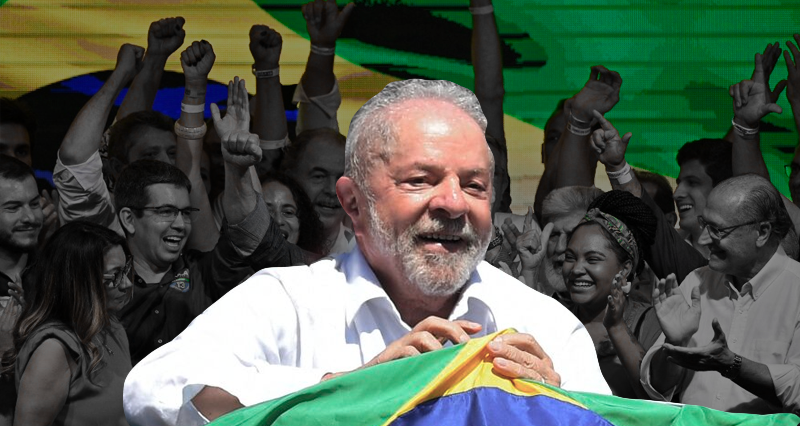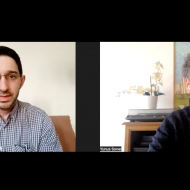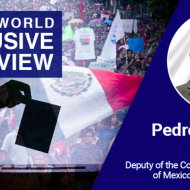By Fernando Esteche *
Lula achieved, despite the very complex architecture of alliances that he developed, 2 million more votes that allowed him to maintain his minimal advantage to consecrate himself as the electoral winner.
In São Paulo and Rio de Janeiro the elected president lost. In Minas Gerais there was a technical tie. The surpassing 3,300,000 votes that he managed to get in Bahia have provided him the victory.
By a difference of less than 2 million votes, Lula managed to prevail over Bolsonaro – in an election with 123 million votes.
Those are the accounts. Those are the cold numbers that hide a dramatic network of tensions, frustrations, violence, dreams, expectations, persecution and resistance of the Brazilian people, their leaders, and their political instruments.
The truth is that Brazil has been split in two in terms of political projects. Lula said it in his consecration speech; two projects faced each other and both were supported in votes by either half of the population, small numerical difference aside.
Brazil has consolidated a Pentecostal (evangelical) and Praetorian right, with an ideological mix that we could define as social fascism taking the definition of Boaventura de Souza Santos. (This article is not the place to define that phenomenon).
Buey, bala y biblia – the 3B of Bolsonarism
In addition to establishing itself as a demo-liberal force, it is consolidating itself as a political force. And the most serious thing is that it retains consensus and power in the most important and richest, most powerful states in the country. In the same way, the parliamentary articulation that years ago we called 3B (because of the ox, bullet and Bible (Spanish: buey, bala, biblia) as a social and ideological alliance of the most reactionary sectors), after the first round of elections, this side has built a parliamentary majority, conditioning any maneuver of the new government requiring parliamentary consent.
Lula got 2 million more votes that allowed him to maintain his minimal advantage to consecrate himself as the electoral winner.
The scenery shows a territory where conditions are given to wage a battle of hybrid war, destabilization and secessionism. A firm and bestial right does not encounter a left with the same attributes, but a hybrid electoral alliance that articulates conflicting interests.
Bolsonarism has a few months ahead – until the inauguration of the elected president – in order to create unthinkable scenarios concerning Lula’s conduct regarding territorial integration and institutional respect.
Lula’s alliance
Lula’s alliance to gain access to the presidency and to build governability has compromised him with broad sectors that are neither distributive nor popular. His own candidate for vice president (who, on the other hand, could not contribute what was expected of him in Sao Paulo) is a man from the business community who seems to emulate Temer, the one who promoted the removal of Dilma Roussef and succeeded her as president of Brazil.
That alliance is what they offer us as a magic recipe from the progressive powerhouses. They tell us to learn from Lula. This is a path that we Argentines have already traveled – the path of “unity until it hurts.” Others celebrate because they hope that Lula will come to the region to do what we or even other peoples and their governments are not capable of doing.
The globalist establishment celebrates the apparent decline of Bolsonaro. Let us not forget that the current Brazilian president is a fervent ally of Trumpism. The probably read speech, in terms of international bottlenecks, was forceful about the concept of Global Governance. In the consecration speech, when Lula talked about international politics, it was for reason that he did not mention UNASUR, CELAC or MERCOSUR. We will have to see how Brazil returns to the world between what the globalists require and Brazil’s own interests demand.
Former Spanish Prime Minister Zapatero’s interventions
The alleged viceroy of an empire that no longer exists, José Luis Rodríguez Zapatero from Spain persists in his interfering and guiding vocation on the democratic formation in our region and is presented by the media as the great guarantor – a man with no power in his own country that comes to the region and gives its opinion on the democratic quality, but above all foreshadows the role that according to him and his bosses Lula must play: It must be organizing regional progressivism in its harmonious transit to semi-automatic alignment with globalism, in its foreign policy, and to carry on its shoulders that interventionism be reduced to the production of supervised democracies, frightening off such pretentious extra-continental influences in favor of the 200-years-old Monroeism.
We have the right to celebrate
We have the right to celebrate. We have the right to ponder the revenge of a man who was imprisoned. What we do not have the right to do is, once the celebration is over, to pretend we are distracted by the serious conditions that are fortifying in our region.
Let’s not fool ourselves, Lula does not come to do what Alberto Fernández did not do, neither does Boric nor can AMLO do. Nor does he come to do what he did before in Brazil, because the world has changed and is in permanent transformation. So are Lula and Brazil too.
There is irrefutable evidence, and it is that the people continue trying to combat neoliberalism, and that they do this with rebellions and struggles, but also and obviously from the electoral columns . That the leaders do not ponder and honor this popular will is another matter. Let us not lose sight of that historical fact offered by the struggle of Chile, Argentina, Mexico, Bolivia, Colombia, Peru and the resistance of the Nicaraguan and Venezuelan people and government, among so many and endless peoples.
Let’s affirm our historical optimism. Just as we affirm our militant and intellectual responsibility not to pretend that transformation processes are the work of extraordinary men or women; on the contrary, they are always the work of the Peoples. Without the accompaniment and leadership of the People, nothing great can be achieved.
* Fernando Esteche is PhD in Social Communication (UNLP), full professor of International Relations (FPyCS – UNLP), professor of Contemporary Latin American History at the University of Mar del Plata, Buenos Aires and the director of PIA Global.
This article was previously published by Pia Global in spanish. Translation and subtitels by UWI.









Leave a Reply